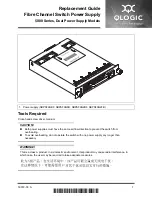
6
English
SPECiFiC SAFETY RULES FOR CORDLESS JiG SAWS
WARNiNG:
DO NOT let comfort or familiarity with this tool (gained from
repeated use) replace strict adherence to safety rules. if you use this tool unsafely
or incorrectly, you can suffer serious personal injury!
WARNiNG:
Hold tool by insulated gripping surfaces when performing an
operation where cutting tools may contact hidden wiring or its own cord. Contact
with a “live” wire will make exposed metal parts of the tool “live” and shock the
operator!
• Avoid cutting nails,
inspect work piece for any nails and remove them before operation.
• Do not cut hollow pipe.
• Check for the proper clearance
beyond the work piece
before cutting so that the
blade will not strike the floor, work bench, and etc
.
• Make sure the blade is NOT contacting the work piece
before the switch
is turned on.
• Do not leave the tool running.
Operate the tool only when hand-held.
• Do not touch the blade or the work piece immediately after operation;
it may be extremely hot and could burn your skin.
• Always switch off and wait for the blade to come to a complete stop
before removing from the work piece.
• Keep hands away from the moving parts.
• Some material contains chemicals which may be toxic.
Take caution to
prevent dust inhalation and skin contact. Follow material supplier safety data.
• Be aware that this tool is always in an operating condition,
because it
does not have to be plugged into an electrical outlet.
• Always hold the tool firmly in your hands
before switching the tool “ON”.
• Wear eye and hearing protection.
Always use safety glasses with side shields.
Unless otherwise specified, everyday glasses provide only limited impact resistance, they are not
safety glasses. Use only certified safety equipment; eye protection equipment should comply with
ANSI z87.1 standards. Protective hearing equipment should comply with ANSI s3.19 standards.
• Protect your lungs.
Wear a face or dust mask if the operation is dusty. Following this rule
will reduce the risk of personal injury.
• Always disconnect battery pack from tool
or place the switch in the locked
or off position before any assembly, adjustments or changing of accessories. Following this
instruction will reduce the risk of serious personal injury.
• Do not place battery tools or their batteries near fire or heat.
This will
reduce the risk of explosion and possibly personal injury.
• Never use a battery which has been dropped or received a sharp
blow.
A damaged battery is subject to explosion. Properly dispose of a dropped or damaged
battery immediately.
Summary of Contents for MLJS12C
Page 44: ...44 NOTES...







































